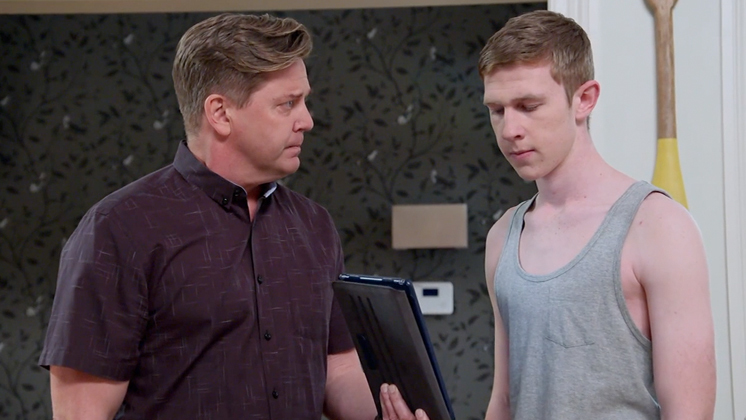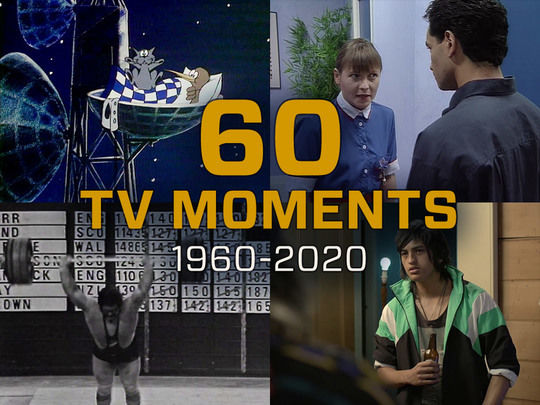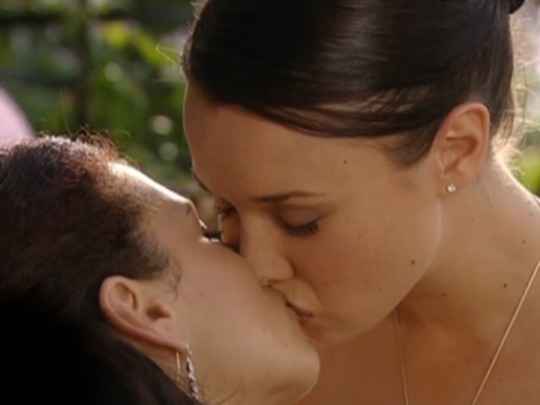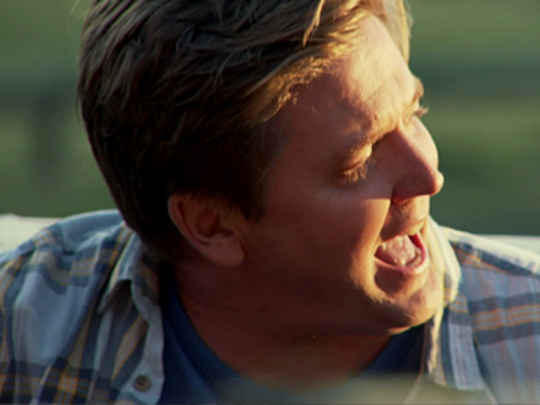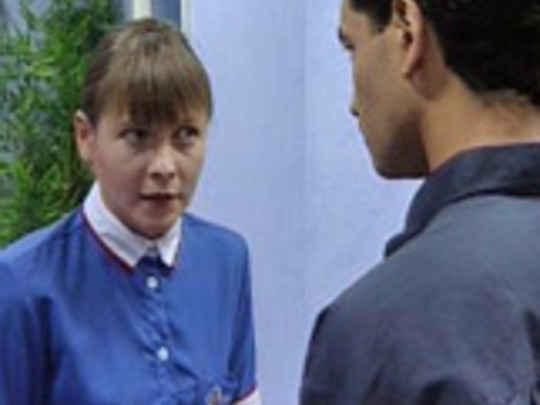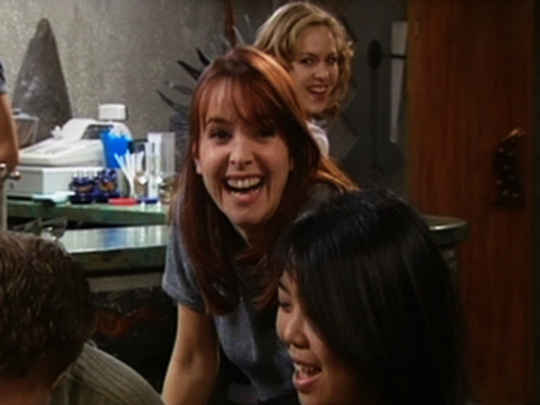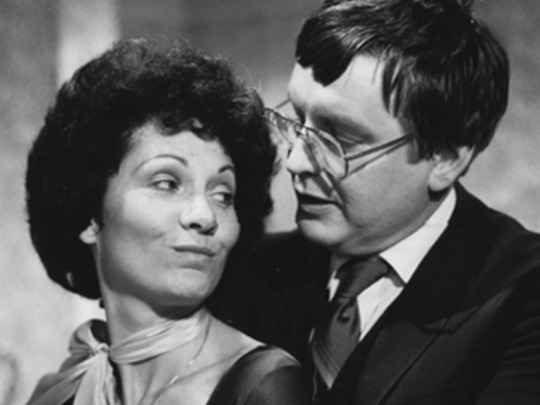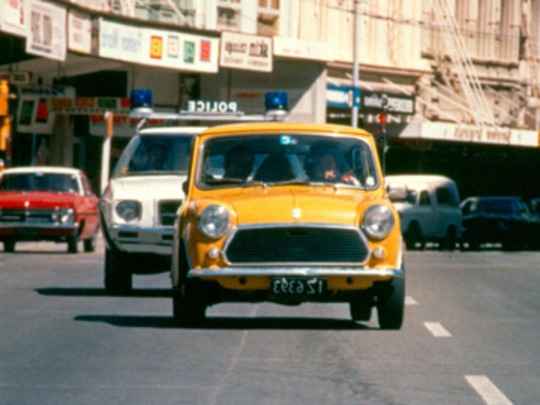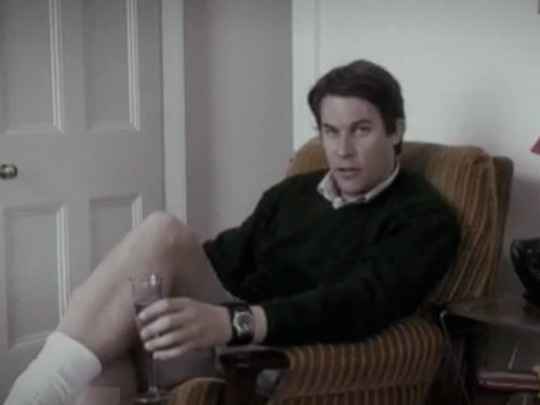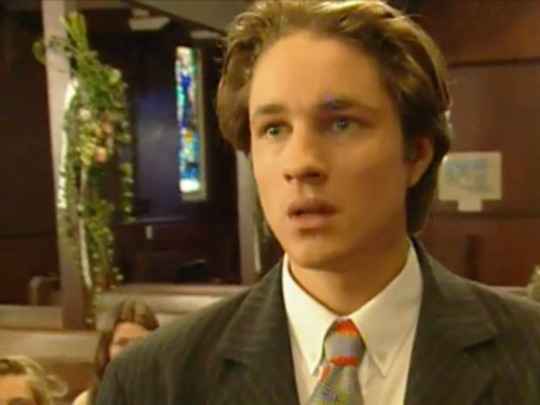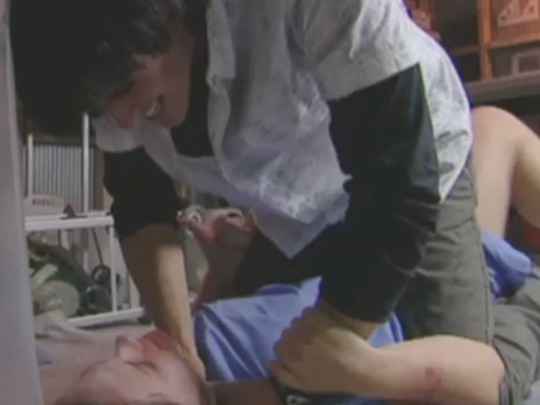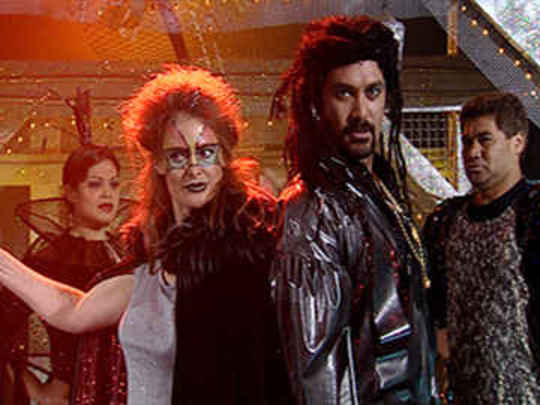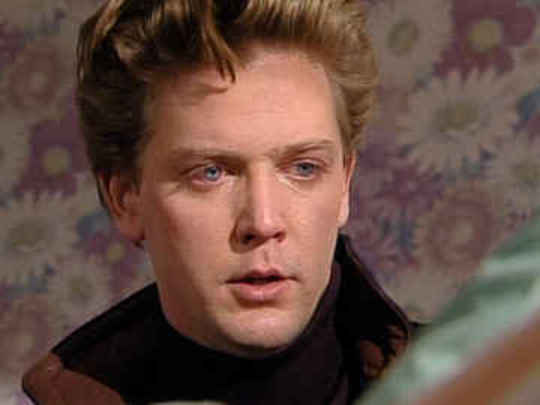Michael Galvin on the huge response to "Not Your Penis"
I was a little nervous when we came to shoot this scene, only because "please tell me that’s not your penis!" was such a great line and I didn’t want to blow it (so to speak). But with a little help from the director I managed to give it the correct amount of crazy, and it got a few chuckles from the crew so I felt I’d managed not to ruin it. Then I forgot all about it...until two months later when it went to air, and every radio station was talking about it. I ended up doing at least a dozen radio interviews. There were complaints from sensitive viewers, of course, but none were upheld because the line contained no actual offensive language.
Then just when I thought the fuss had died down, I got a text from our publicist at 6:30am that read "Alec Baldwin playing Chris Warner". I just assumed he’d had a big night out and hadn’t gone to bed yet, until he sent me the link for Jimmy Kimmel and Alec Baldwin performing the scene on Jimmy Kimmel Live! It was a very unsettling collision of universes, watching a Hollywood movie star playing Chris Warner (my daughter, God bless her, said "you did it better, Dad"). And, of course, I then had to do another dozen follow-up radio interviews.
Poor Reid Walker, who plays Harry, was attending an all-boys school at the time, so no prizes for guessing what was yelled at him by some of his schoolmates every day for a month. Needless to say, the scene went viral: last time I looked, a YouTube version of it had clocked up just over two million views.
- Actor and award-winning playwright Michael Galvin is the longest-serving cast member of Shortland Street.
Back to top
Shortland Street
By
Mihi Murray
09/06/2021
Shortland Street can claim a number of firsts: the first five-day-a-week drama, the first fast turn-around NZ serial drama geared to a commercial market; it was also the first NZ soap to be exported. It has become iconic NZ television, and lines from the show have entered the culture: most famously, “you’re not in Guatemala now Dr Ropata!”
Right from the first episode Shorty (as it’s affectionately known) made an impact, with a canny sex scene ensuring the show would turn heads.
In 1991 funding body NZ On Air invited television networks to submit proposals for a daily soap opera aimed at the 14 – 25 demographic. Although TVNZ’s Shortland Street beat out TV3’s Homeward Bound, TVNZ’s top executives assessed the project as too high a risk. However programming and production executives actively encouraged the concept, with Bettina Hollings, Caterina De Nave, and Don Reynolds spearheading the push. In 1991 an agreement between NZOA, TVNZ, and South Pacific Pictures assured a year’s worth of episodes, and a three million dollar budget to work with.
Australia’s Grundy Television aided by providing extra financial assistance, writing advice, and production expertise, leveraging their proven soap opera production experience, the most relevant being The Young Doctors (1976–1983).
The production efficiently blends melodrama, social realism and comedy and turns out the required hospital soap opera elements: medical crisis, romance, human drama, comedy and cliff-hanging suspense. Despite Shortland Street’s format — populist entertainment based on imported genre models — the show has a very strong local flavour. Over the years, the storylines have had an uncanny knack of relating to and even anticipating, contemporary political, social and cultural issues.
The original setting, a private health clinic, reflected the current drive by the then-government to make health services more ‘user pays’. Later political changes in the Shortland Street administration seem to parallel restructuring within New Zealand’s health sector. Other political issues that have impacted on New Zealand society have also been dealt with in the show’s storylines, including changes in the education system, Māori land grievances, the Civil Union bill and union disputes.
Shortland Street has been a significant vehicle for changing the way ethnicity is represented on New Zealand screen. From the beginning, a diversity of cultures have been cast. Nancy Brunning (Jaki Manu), Temuera Morrison (Hone Ropata), Rene Naufahu (Sam Aleni), and Lynette Forday (Grace Kwan) were the first in a long line of Māori, Pacific and Asian talent to walk the hospital’s corridors.
In particular the portrayal of Māori and Pacific Islanders as urbane middle-class professionals (doctors, nurses, ambulance drivers, CEOs and entrepreneurs) represented a positive change for those cultures, who, apart from the odd character in Close To Home and the likes of Billy T James and Jim Moriarty, had scant presence on primetime television or stage.
The production has also been something of an unofficial industry training institution, both behind and in front of the cameras. Original Shortland producer Caterina De Nave argued that “you can always tell a Shortland Street actor, they’re technically very good .. they can cope with any changes that have to happen quickly on location or in the studio”. A sampling of names that have been through the Shorty stable reads like a who’s who of Kiwi acting talent: aside from long-timers Michael Galvin (aka 'Dr Love') and actor turned director Angela Bloomfield, the list includes Tim Balme, Geraldine Brophy, Alison Bruce, Danielle Cormack, Shane Cortese, Marton Csokas, Oliver Driver, Martin Henderson, Anna Hutchison, John Leigh, Robyn Malcolm, Miriama McDowell, Temuera Morrison, Dean O'Gorman, Craig Parker, Madeleine Sami, Miriama Smith, Antony Starr, Joel Tobeck, Calvin Tuteao, Karl Urban, Jennifer Ward-Lealand, Katie Wolfe and Tandi Wright.
Writers who scrubbed up on the show include some major names in NZ television: people like Rachel Lang, James Griffin, Gavin Strawhan and Kate McDermott. Among the directors who've gone on to varied industry careers are Mark Beesley, Murray Keane and Britta Johnstone. Former director's assistant Rachel Jean became drama and comedy commisioner at TV3, while directors Laurence Wilson and Tessa Hoffe went on to direct for major English soaps like EastEnders and Coronation Street.
Due to Shortland's primetime family time slot of 7pm, the storylines and scripts are kept in line with broadcasting standard guidelines. Early plots were fairly conservative, but over the years they have become bolder in content, daring to openly reference issues such as homosexual relationships, promiscuous sexual behaviour, AIDS, drug and alcohol abuse, teenage sex, suicide, cot death, child abuse and violence.
The long-running production has consistently reinvented itself. Shortland Street's continuing presence as the flagship Kiwi soap opera is testament to the production’s ability to adapt to ratings downturns and shifts in audience expectations.
- Mihi Murray (Ngāpuhi, Ngāti Awa) has been an actor, writer, artist, DJ and radio presenter.
Back to top
